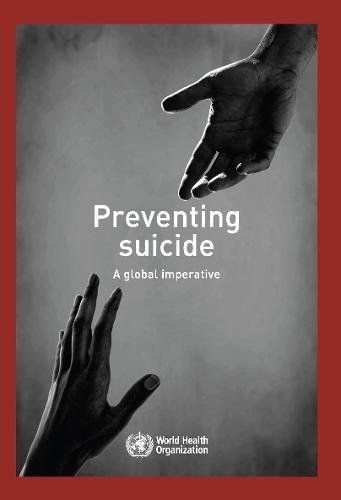
Preventing Suicide A Global Imperative
"Suicides are preventable. Even so, every 40 seconds a person dies by suicide somewhere in the world and many more attempt suicide. Suicides occur in all regions of the world and throughout the lifespan. Notably, among young people 15-29 years of age, suicide is the second leading cause of death globally. Suicide impacts on the most vulnerable of the world's populations and is highly prevalent in already marginalized and discriminated groups of society. It is not just a serious public health problem in developed countries; in fact, most suicides occur in low- and middle-income countries where resources and services, if they do exist, are often scarce and limited for early identification, treatment and support of people in need. These striking facts and the lack of implemented timely interventions make suicide a global public health problem that needs to be tackled imperatively. This report is the first WHO publication of its kind and brings together what is known in a convenient form so that immediate actions can be taken. The report aims to increase the awareness of the public health significance of suicide and suicide attempts and to make suicide prevention a higher priority on the global public health agenda. It aims to encourage and support countries to develop or strengthen comprehensive suicide prevention strategies in a multisectoral public health approach. For a national suicide prevention strategy, it is essential that governments assume their role of leadership, as they can bring together a multitude of stakeholders who may not otherwise collaborate. Governments are also in a unique position to develop and strengthen surveillance and to provide and disseminate data that are necessary to inform action. This report proposes practical guidance on strategic actions that governments can take on the basis of their resources and existing suicide prevention activities. In particular, there are evidence-based and low-cost interventions that are effective, even in resource-poor settings. This publication would not have been possible without the significant contributions of experts and partners from all over the world. We would like to thank them for their important work and support. The report is intended to be a resource that will allow policy-makers and other stakeholders to make suicide prevention an imperative. Only then can countries develop a timely and effective national response and, thus, lift the burden of suffering caused by suicide and suicide attempts from individuals, families, communities and society as a whole."--Preface, page 03.